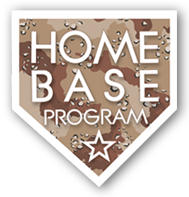 June is dedicated to Post Traumatic Stress Disorder Awareness. At Ezra Home Care, we provide care for many Veterans, Holocaust Survivors and others who have PTSD. After a trauma or life-threatening event, it is common to have reactions such as upsetting memories of the event, increased jumpiness, or trouble sleeping. If these reactions do not go away or if they get worse, you or your loved one may have Post Traumatic Stress Disorder (PTSD). It is important to note that symptoms of PTSD can become more profound in the elder years.
June is dedicated to Post Traumatic Stress Disorder Awareness. At Ezra Home Care, we provide care for many Veterans, Holocaust Survivors and others who have PTSD. After a trauma or life-threatening event, it is common to have reactions such as upsetting memories of the event, increased jumpiness, or trouble sleeping. If these reactions do not go away or if they get worse, you or your loved one may have Post Traumatic Stress Disorder (PTSD). It is important to note that symptoms of PTSD can become more profound in the elder years.
While PTSD is often associated with military personnel, anyone can develop it. According to the U.S. Department of Health and Human Services, PTSD affects about 7.7 American Adults. PTSD can be a result of a traumatic experience, such as an auto accident, a natural disaster, abuse, or any other life-threatening event. If you are concerned about a loved one who has lived through a traumatic experience (whether this experience was recent or not), look for the following symptoms.
- Reliving the experience(s) through flashbacks, nightmares, or being triggered by a sight or smell that takes you back to the incident. For example, your loved one witnesses a fire and he or she begins to "relive" the time they nearly died in a fire.
- Avoidance of situations that recall the traumatic event. For example your loved one refuses to take a shower in a public place (as it is a reminder of the concentration camp they were in).
- Emotional numbness. In order to avoid memories of the event, all emotional triggers are avoided. People, hobbies, activities that were once loved are neglected and uninteresting.
- Unable to relax. This can cause issues with falling or staying asleep, concentration, and being easily startled by a loud noise or surprise.
For Families, Friends, and Caregivers
For extreme situations of PTSD seek out a medical professional for help. Please visit the VA’s list of resources to help you and your loved one. We recommend giving your loved one a Trauma Symptom Checklist that they can provately fill out on their own and share with a specialist. In addition here are a few ways that you can help your loved one with PTSD.
- Offer to listen to "what happened in the past" but do not keep offering to to listen if he or she does not want to speak about it.
- Encourage physical activity. Exercise helps with emotional and physical well being.
- Encourage socialization with friends and family. When dealing with difficult changes and stressful situations, a strong support system helps alleviate painful memories.
- Find support groups for yourself and your family.
If your loved one has PTSD and needs home care services please contact us.
During the month of July Ezra Home Care will donate $1 to the Home Base Program for every new facebook like, twitter follow or linkedin follow we receive. Please tell you friends!

The Red Sox Foundation and Massachusetts General Hospital Home Base Program provides clinical care and support services to New England-area Service Members, Veterans and families affected by combat or deployment-related stress or traumatic brain injury. We offer clinical and community education on these "invisible wounds of war" and conduct research in the understanding and treatment of post traumatic stress (PTSD) and traumatic brain injury.



 Tweet
Tweet
 Share
Share



